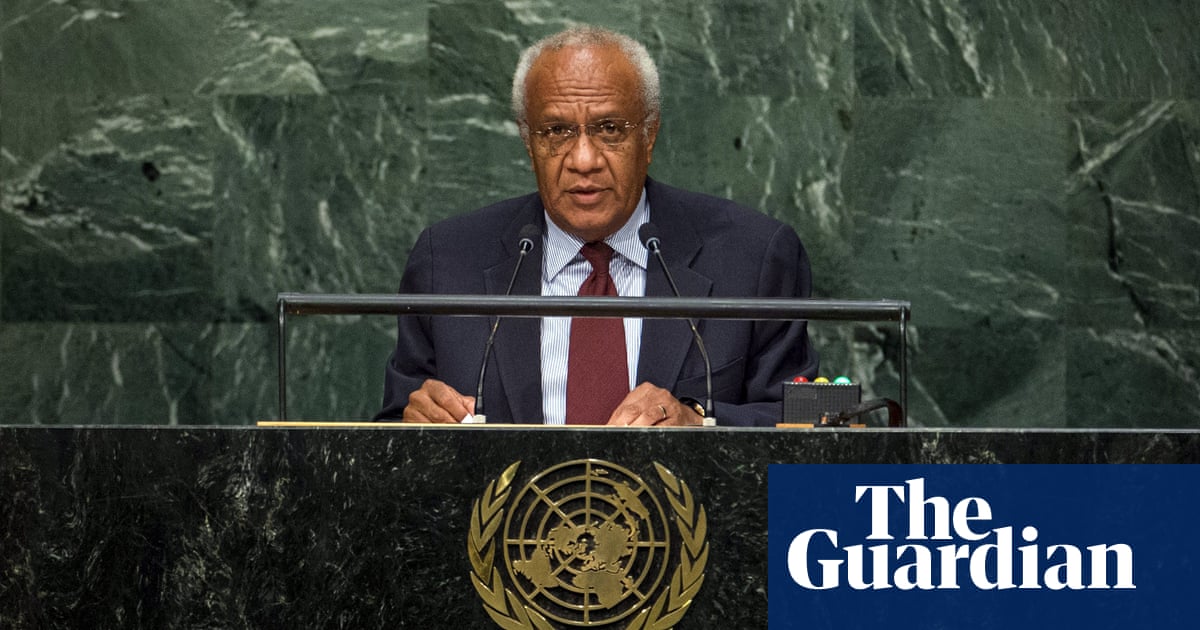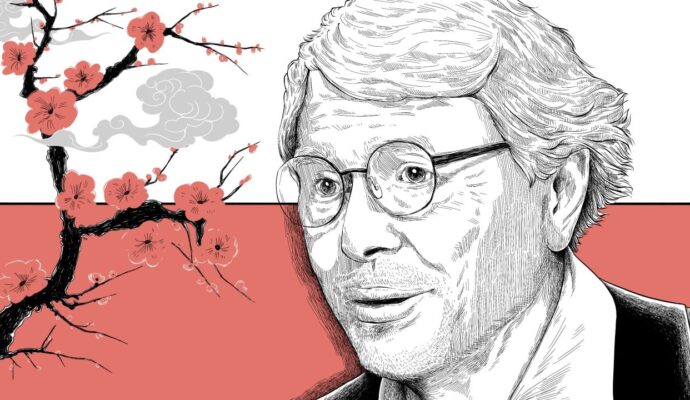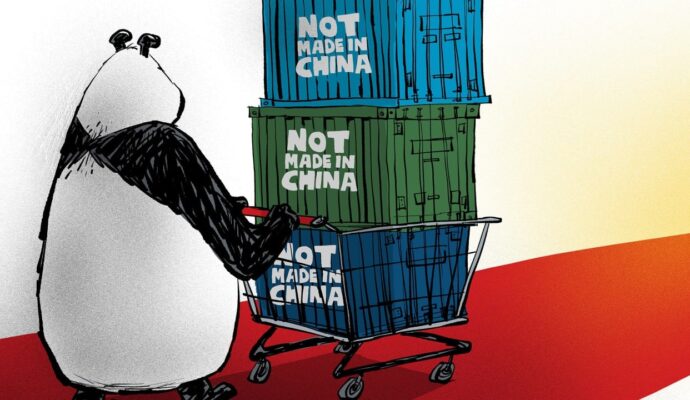
Vanuatu’s new prime minister says the Pacific island nation will likely need to rethink a security agreement signed with Australia.
Less than a day into his tenure, Sato Kilman said the parliament was unlikely to ratify the agreement, with questions raised about it being in Vanuatu’s best interests.
“What I’ve heard is that it may be difficult to get ratification from parliament, so my view would be to revisit the agreement with both sides,” he told the ABC.
He also hit back at reports about his political alignments as western nations grapple with Beijing for influence in the Pacific.
“We are not pro-west, we are not pro-Chinese, we adopt a non-aligned policy.”
The agreement has been signed but needs to be ratified by Vanuatu’s parliament.
It spans cooperation in areas including disaster relief, environmental and resource security, cybersecurity, aviation safety and law enforcement.
A spokesperson for the Department of Foreign Affairs and Trade said Australia will continue to work with Vanuatu to deliver “mutual benefits” and “ensure our shared security.”
“Australia respects Vanuatu’s sovereign decision-making processes, including in relation to the Bilateral Security Agreement that began in 2018 and was signed in 2022.”
“We are looking forward to discussions with the new Vanuatu Government on all areas of cooperation – including their views on the Agreement – to ensure we address the needs of both countries.”
Kilman took over the prime ministership on Monday after Ishmael Kalsakau was removed by a vote of no-confidence.
Kalsakau visited Australia in February to discuss trade and security with prime minister Anthony Albanese in what was the first visit of Vanuatu’s sitting prime minister since 2018.
Prof Meg Keen, the director of the Pacific Island Program at the Lowy Institute, said Kilman’s statement reflected the significance of Vanuatu’s non-aligned status.
“He’s worried about Vanuatu’s status, and being able to hedge between Australia, the United States and China, to maximise development partnerships and investments.”
“It indicates Australia is going to have to work extremely hard to maintain its position as the primary security partner in the region. This is a competitive environment, Vanuatu and other Pacific Island countries are willing to diversify relationships to get the best outcomes for their countries.”
She said that while the statement was a “setback”, it didn’t mean the door was closed on Australian cooperation with Vanuatu.
“It’s also key to realise that Australia has more than one string to its bow. Our current aid program already covers a number of areas covered by the security pact,” she said.
“And although this is a disappointment, as Australia wants to remain the security partner of choice in the region, it’s not a totally closed door. We have cooperation on a number of fronts and we can work towards advancing some of those areas.”
Concerns have previously been raised about a possible Chinese push for a naval base in Vanuatu.
China has denied it is seeking a military presence in the Pacific.


